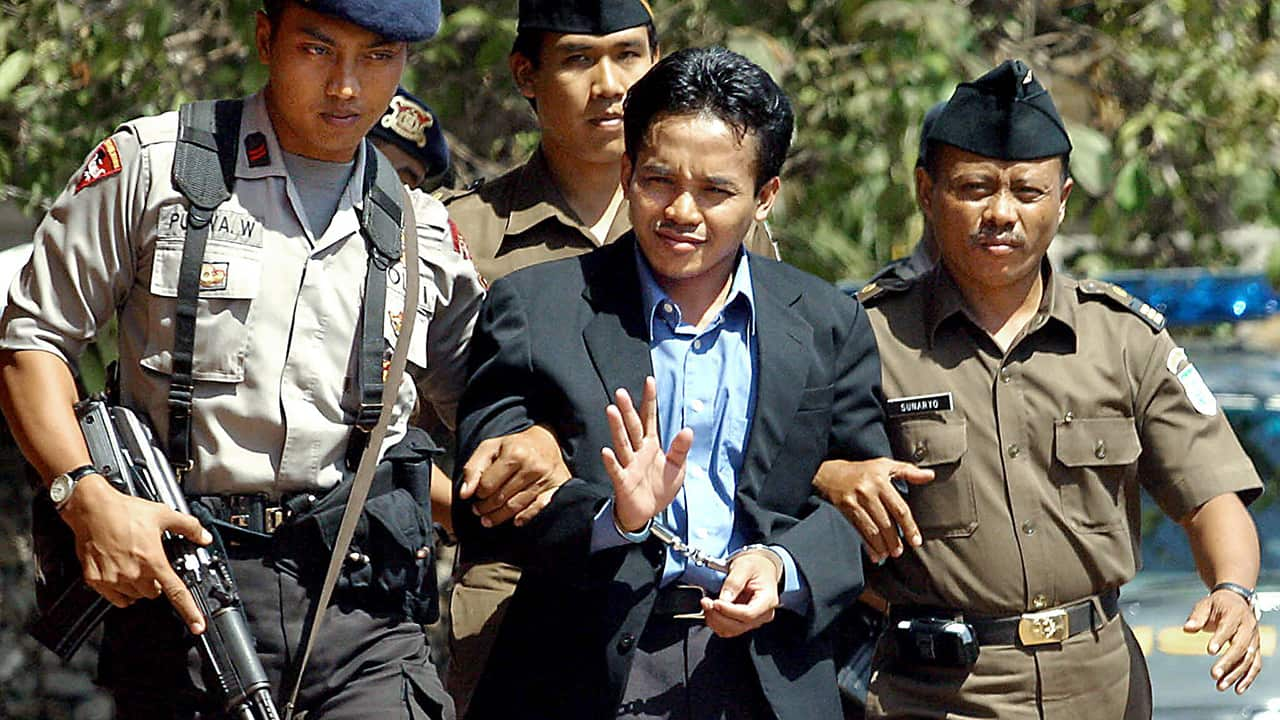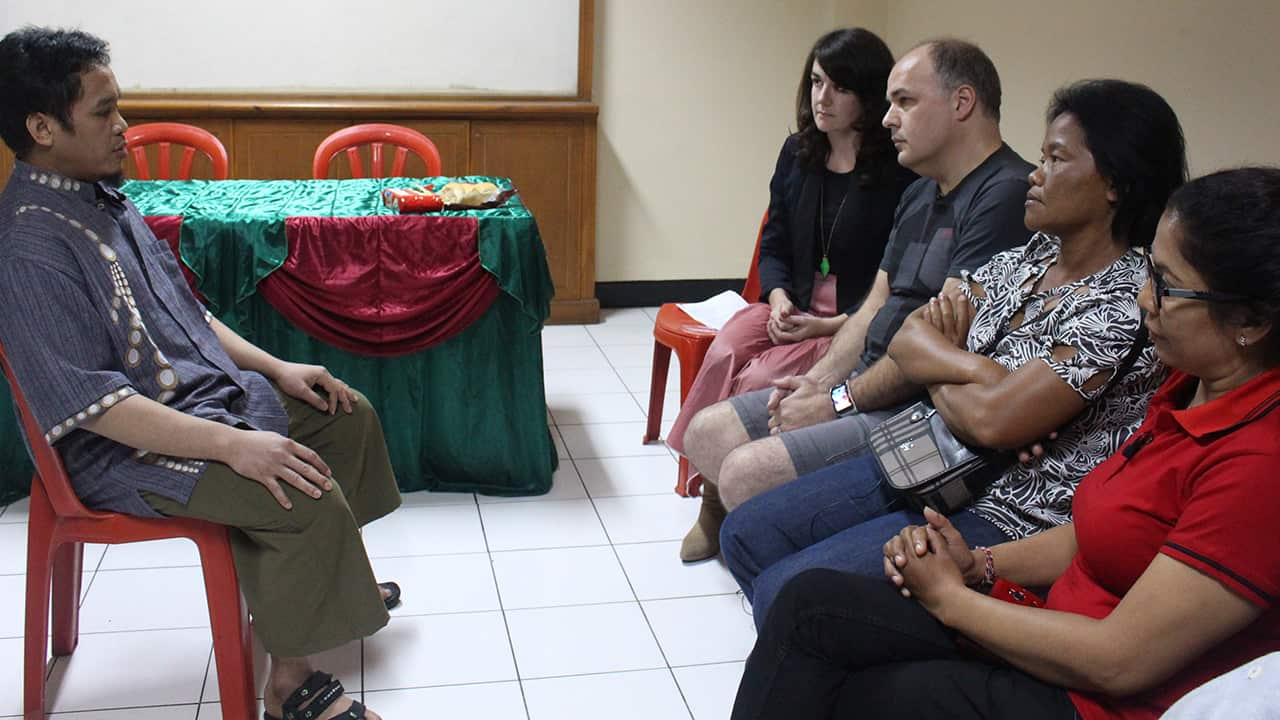Ali Imron was driving the van loaded with explosives that was used in the Bali bombings in 2002. While he escaped, two suicide bombers blew themselves up, killing 202 people.
He was convicted along with his brothers Mukhlas and Amrozi and accomplice Imam Samudra.
Ali was given a life sentence after he showed remorse at his trial and agreed to cooperate with police, but his evidence against the others ultimately led to their execution by firing squad.

In a two-part Dateline special, he faces questions from three of the bereaved as they try and understand what happened and why.
Indonesians Nyoman Rencini and Ni Luh Erniati lost their husbands, and Australian Jan Laczynski lost five friends.
“Are you really sorry?” Jan wants to know. "How do you sleep at night?"
“I’ve said that I apologise to everyone, especially the victims and their families,” Imron responds, “And I’m sure it was a false jihad.”
"In order to take responsibility for my mistake and apologise, if I have to go to Australia, no problem."

Like the man who trained him in Afghanistan, Nasir Abbas, he now works with the authorities on deradicalisation.
“The victims and their families hate me and so do my comrades. So actually, I bear the heaviest burden,” he tells them.
“I’m not grateful that there was a bombing in Bali. I’m grateful that I’m one of the perpetrators who realises they were wrong and are repentant.”
“It’s too late,” Nyoman responds.
But he leaves no doubt that he still has the contacts and expertise.
“Plenty of people have invited me… ‘come on, let’s organise another bombing in Bali’… I can find a bomb even though I’m inside,” he tells them. “In two hours I could have someone ready to kill themselves.”
After meeting Nasir Abbas in part one of Dateline's story, see the tense meeting with Ali Imron:
Dateline is an award-winning Australian, international documentary series airing for over 40 years. Each week Dateline scours the globe to bring you a world of daring stories. Read more about Dateline
Have a story or comment? Contact Us


